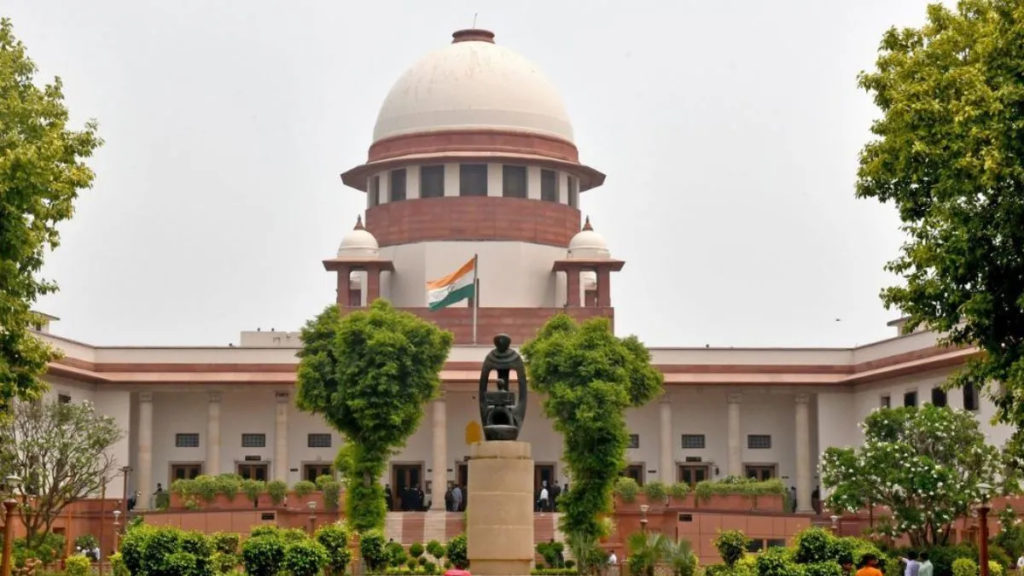
India’s Supreme Court has put on hold a directive by the Delhi High Court for the implementation of the Ayushman Bharat Health Infrastructure Mission (PM-ABHIM) in the national capital. The stay was on after the Delhi government challenged the High Court order, arguing that the central scheme cannot be rolled out mandatorily.
The apex court has further issued notices to the Union Ministry of Health and Family Welfare, All India Institute of Medical Sciences (AIIMS), and the Municipal Corporation of Delhi (MCD) seeking their responses.
Delhi Government Argument
During the course of the hearing, senior advocate Abhishek Manu Singhvi, on behalf of the Delhi government argued, “It has overreached its competence while enforcing a decision on matters of policy.The High Court, in which lies the domain and jurisdiction cannot mandate the signing of a Memorandum of Understanding with the Centre”.
The Delhi government has been oppositional in implementing the Ayushman Bharat scheme in the city. They argue that the scheme that was introduced in 2018 is anchored on data that is quite outdated and does not cater to Delhi’s healthcare needs.
In its affidavit to the High Court, the government highlighted that only 12-15% of Delhi’s population would benefit from the PM-ABHIM scheme, leaving the majority without healthcare support. Furthermore, it claimed that replacing the city’s existing state-run health schemes with the central initiative would negatively impact the quality of services currently provided to residents.
High Court Directive and Political Implications
The High Court had earlier directed the Centre and the Delhi government to sign an MoU by January 5, 2025, for implementing the Ayushman Bharat scheme. This decision had been surrounded by debate over federal power-sharing, as the AAP-led Delhi government had opposed what it called an “imposition” by the central government.
The controversy has only fuelled the political battle between the Bharatiya Janata Party (BJP) and AAP, with the elections to the next government in Delhi drawing near.
Ayushman Bharat Scheme Highlights
The Ayushman Bharat Pradhan Mantri Jan Arogya Yojana (PM-JAY) is a flagship health initiative by the Centre, offering cashless health coverage of up to ₹5 lakh per family annually. Key features include:
- Coverage for over 1,500 medical procedures, including critical treatments like cardiac surgeries and cancer care.
- Aimed at providing secondary and tertiary healthcare for vulnerable populations.
- Designed to reduce out-of-pocket expenses by allowing access to empanelled hospitals for treatment.
Despite its nationwide rollout, the Delhi government maintains that its state health schemes provide “superior benefits” to the city’s residents.
While the Supreme Court’s intervention temporarily puts the order of the High Court in abeyance, the controversy over the Ayushman Bharat scheme in Delhi hints at much larger questions about federalism and priorities in health. As the case goes ahead, the implications will be immense in terms of both politics and healthcare in the national capital.
